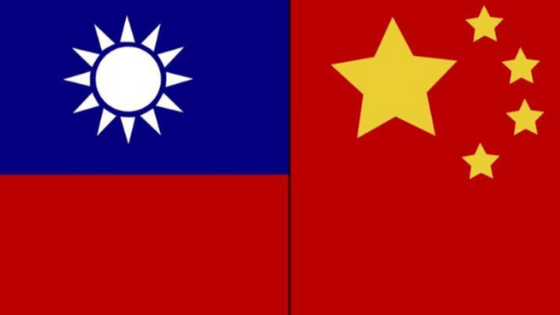Excerpt: “We are living in a new world—the world of attempted Chinese hegemony—and U.S. policy makers had better adjust, fast.”
Forty years ago, China wasn’t a global menace. It is now. U.S. policy on Taiwan needs to catch up.
[Seth Cropsey | June 18, 2019 | WSJ]
In Hong Kong, hundreds of thousands have taken to the streets to protest a bill permitting the arbitrary arrest and extradition of citizens to mainland China. Hong Kongers were assured in 1997 that they would enjoy a “high degree” of autonomy when the British transferred the colony back to China. That “high degree” is dropping lower and lower.
Taiwan—an island nation 100 miles off China’s coast, formally called the Republic of China—was founded in 1949 by Chinese opponents of the Communist revolution. Its history of peaceful transfers of power between opposing political parties is a standing reproach to China’s dictatorship. So is its wealth—Taiwan’s gross domestic product per capita is 250% as large as China’s.
China’s leaders fear and detest Taiwan, in large measure because it’s an American ally. In the event of an attack on Taiwan by a hostile nation (read: China), the U.S. is pledged to aid its ally. Failure to fulfill that pledge would effectively encourage other regional allies such as South Korea and Japan to make accommodations with Beijing. That would be an unmitigated disaster: Control of Taiwan would allow Beijing to menace Japan’s southwest islands and the U.S. Marine base on Okinawa, to enforce its wrongful claim to the South China Sea.
In 1979 the Carter administration, furthering Richard Nixon’s policy of driving a wedge between Soviet Russia and China, formally recognized the Communist People’s Republic. Unfortunately, that meant closing the U.S. Embassy in Taiwan.
President Carter abandoned the U.S.’s mutual defense treaty with Taiwan and agreed to measures to increase American diplomatic and security engagement with China at Taiwan’s expense. He left the Republic of China with a small promise of help, signing the Taiwan Relations Act, which Congress passed—by a veto-proof majority—to ensure U.S. military assistance for Taiwan’s self-defense.
In the 40 years since that shift, American policy toward Taiwan has remained largely the same. But America’s relationship with China has changed radically. The Soviet Union is no more; the Nixon/Carter strategy is largely irrelevant. In recent years, President Xi Jinping has adopted aggressive and militaristic policies. It’s time for the U.S. to update its approach to Taiwan.
China is a key U.S. trading partner, but no friend. It rejects U.S. political principles and resents America’s role as a guarantor of international security in the Indo-Pacific region and globally. Beijing aims to exclude the U.S. Navy from the international waters of the Western Pacific and to sever American communications with its regional allies. China wants military predominance over the chain of islands that bracket the Asian mainland and stretch from the Aleutians to the Philippines. Taiwan, America’s 11th-largest trading partner, is at the center of this chain.
At present, the U.S. truckles to Chinese policy on Taiwan. The U.S. does not allow the four-star admiral who commands the U.S. Indo-Pacific Command to visit Taiwan. It does not permit Taiwan’s navy to take part in the U.S.-led annual naval exercise in the Pacific—although we have twice invited China to participate. Taiwan’s top political leaders are forbidden from traveling to Washington. U.S. executive-branch officials refuse to visit the Taiwan delegation’s Washington offices.
The list of indignities is much longer, and unworthy of the relationship between two democratic allies. The need to remake U.S. policy toward Taiwan has long been obvious. In military or naval terms, it would be difficult to overstate Taiwan’s geographical importance.
Mr. Xi says force is an option for “reunification” of Taiwan with China. Yearly he adds to China’s already formidable arsenal of missiles aimed at Taiwan. Experts debate when Mr. Xi plans to use force against the island. Will it be in 2049, the 100th anniversary of China’s Communist takeover—or in 2020?
The U.S. is now conducting more-frequent freedom-of-navigation operations in the South China Sea and lengthening the range of its antiship missiles to contest control of the seas. Taiwan is building its own submarines. Japan is acquiring more amphibious capability, essential to defending its southwest islands, a short distance from Taiwan. China’s navy must pass through those islands to enter the main body of the Pacific.
Beijing would like to roll up both the northern and southern arcs of the First Island Chain (the chain of archipelagoes nearest the East Asian continental mainland), to cut America’s ability to supply its East Asian allies, and to have unchallenged access to the central Pacific—from which it could put at risk the major U.S. base at Guam, attack Hawaii, and cut America’s communications with Australia.
National security adviser John Bolton was right to meet with David Lee, general secretary of Taiwan’s National Security Council, late in May. No such meeting had occurred for 40 years. It would be wise to open the way for presidential and senior cabinet members’ meetings and visits to each other’s capitals. Other overdue changes: joint U.S.-Taiwan military exercises, an operations center allowing coordination of exercises and emergencies, and a substantial upgrade of diplomatic relations. All this would clarify America’s commitment to Taiwan, reducing the likelihood of Chinese overreach through miscalculation. A realistic policy review would also allow the Trump administration’s sale of more than 60 F-16 tactical fighters to proceed without further delay. They are sorely needed to improve Taiwan’s defenses against invasion.
We are living in a new world—the world of attempted Chinese hegemony—and U.S. policy makers had better adjust, fast. Ask the people on the streets of Hong Kong.
Mr. Cropsey is director of the Hudson Institute’s Center for American Seapower and a former deputy undersecretary of the Navy.
Read the original article here.
Leave your comments below:













